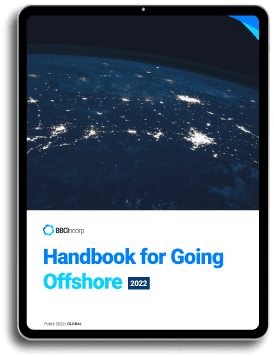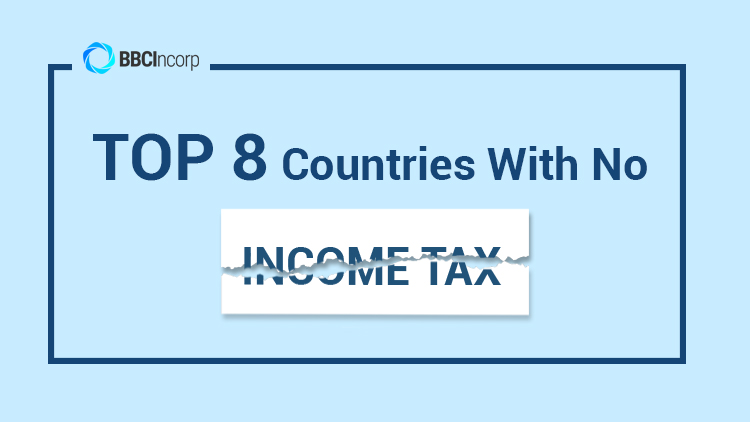
Ever heard of countries with no taxes at all? Many business owners like the idea of an offshore business due to its favorable tax and money-saving benefits. Countries with no income tax or low tax, therefore, have emerged as the top priorities for them.
In this article, BBCIncorp will walk you through some countries without income tax that you should take into account!
1. Ways to lighten your tax burden
Taxation never stops being a hot discussion topic. While high-tax countries like the US usually temporize people when living or running a business, seeking nations with lower tax rates or even tax exemption tends to gain more in popularity.
Two common methods for tax-savings that you can consider are:
- Countries with no income tax, or
- Countries with the territorial tax regime
However, there are other factors to the equation like compliance requirements, banking needs, and the overall reputability of an offshore jurisdiction. All of which makes the selection process that much more complex.
If you need help with sorting through all the noises, visit our offshore comparison page for a clear overview of what each jurisdiction has to offer.
2. Top 8 countries with no income tax

Some citizens decided to change their citizenship to earn a good pathfinder for their business growth in terms of tax benefits. However, it is not that easy because of its expensiveness and long-time waiting procedure. Instead, a large number of business players put their eyes on some tax-friendly places or the country without an income tax.
In most countries, the governments receive income tax as a main source of funding. However, there are still some countries that impose no income tax at all. At this point, you may wonder, “but how?”
The short answer is they have other sources of income. For instance, the oil industry accounts for the majority of government funding in Oman or Qatar. The same goes with the Maldives, its main source of funding comes from tourism. These sources of revenue are sufficient to allow these countries to eliminate taxes imposed on corporate or personal income.
To help you narrow down your options when choosing a country without income tax for living or investing, below are the top 5 recommended countries for you!
Bahamas
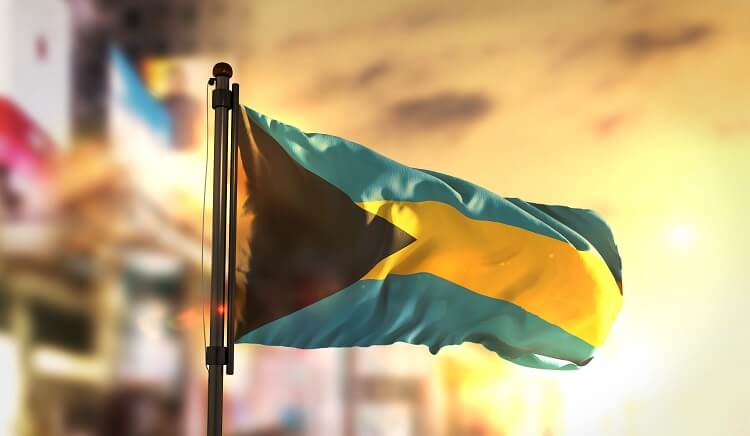
Not to mention the good infrastructure and services available, the Bahamas is an option to consider for most offshore seekers in terms of no-income-tax country. While there is no corporate income tax in the Bahamas, no tax is levied on individual income in this country as well.
If you are a resident in Bahamas, you pay no tax on your earnings at all, regardless of where you generate your income. One striking reason behind this is that Bahamas’s earnings are from traveling and offshore industry, but does not rely much on income tax revenues like some other countries.
It is also worth mentioning that seeking a residency permit in this country is quite simple for foreigners. Normally, you are required to pay only around $1000 for the application fee. You would also be granted a permanent residency permit if your investment into immovable property costs no less than $250,000. In addition, the Bahamas sets out minimum residency conditions so that you can obtain permanent residency status and qualify for the tax relief.
From business and investment perspectives, the Bahamas also offer a range of free trade zone incentives. Particularly, your business can be exempt from import or export duties and VAT if your said transactions are eligible.
If you wish to choose this place for doing business, there are many types of business entities available. Limited liability company, foundation, partnership, private corporation, or Bahamas international business company are typical examples.
Bermuda
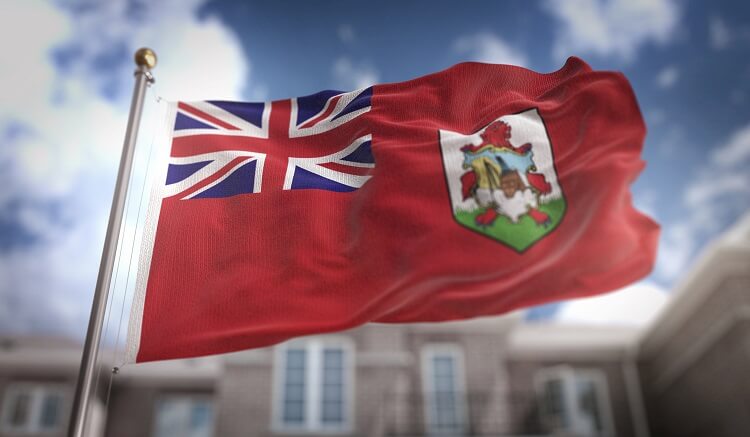
Bermuda is an independently administered location of British Overseas Territory in the North Atlantic Ocean. It is widely known as one of the best free-income-tax nations for offshore seekers.
No corporate income tax is imposed in Bermuda, resulting in less compliance burden for corporations. Additionally, regardless of whether you are Bermuda residents or not, you are free from personal income tax and capital gains tax in Bermuda. There is also no withholding tax levied on dividends, royalties, or payments for technical services in this country.
The good quality infrastructure and a well-developed financial industry are other advantages when it comes to Bermuda. However, one disadvantage is that this is a quite costly place for residing or doing business.
Some most popular types of business structure in Bermuda include:
- The limited liability company to conduct business in Bermuda
- The exempted company incorporated by most Bermudian non-residents to carry on business outside the country
- Partnership
Cayman Islands
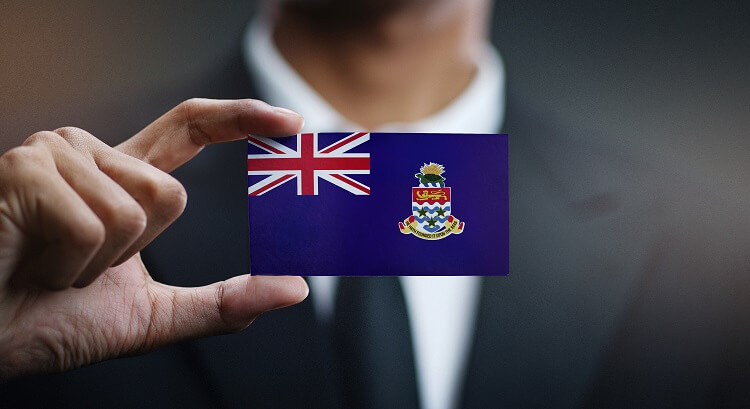
The growth of tourism leads the government of the Cayman Islands to retain without income tax implications. There is no corporate and personal income tax in the Cayman Islands. A large number of multinational companies choose this place to incorporate their subsidiary entities for tax advantages.
Furthermore, dividends, royalties, interests are free from withholding tax in the country, and there is also no VAT tax applied. No direct taxes would be imposed on its residents.
For those interested in residing in Cayman, a key to mention is that you would have to spend a large amount of money to find the path for permanent residence permit. In normal cases, you need to settle about $145,000 on a yearly basis or invest four-times higher that amount in immovable property or domestic enterprises for long-term living on the Grand Cayman. You can also be required to wait for several years before your application for residence is approved. It is a long run, to be exact!
If you are a foreign entrepreneur or investor and wish to set up an offshore company in the Cayman Islands, then an exempted company can be your most ideal business entity. Read more: A guide to Exempted Company in Cayman Islands
Saint Kitts and Nevis
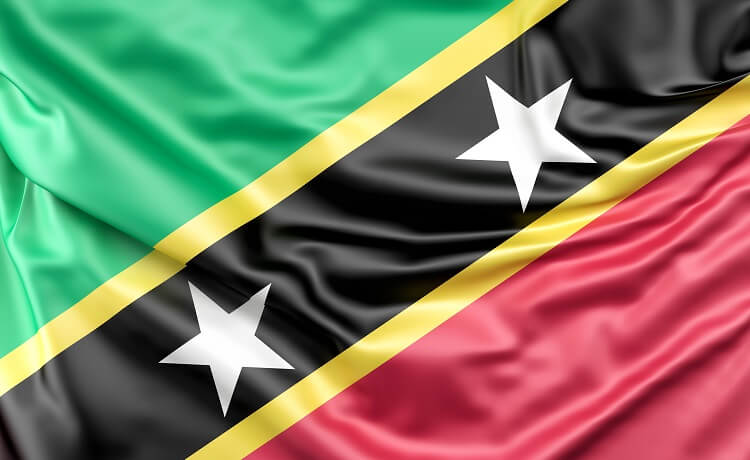
Saint Kitts and Nevis is another recommended option for foreigners looking for a place with no tax on income. Although a resident company in St. Kitts and Nevis is taxed on worldwide income, i.e., the corporate tax rate is 33%, a non-resident company is NOT subject to any tax for all income derived outside the country.
For example, by establishing a St. Kitts and Nevis international business company, your company enjoys no taxes imposed on incomes, gifts, wealth, or capital gains. Only when the company generates income sourced from St. Kitts and Nevis will the amount be taxed.
There is no personal income tax and no withholding tax on dividends payments to residents in St. Kitts & Nevis. If dividends, interest, royalties are paid to non-residents, regardless of company or individual, a withholding tax of 15% shall be charged.
Another highlight is that the process to become a long-term resident in St. Kitts and Nevis is relatively easy. Furthermore, the amount of money for residency status through investment is also more competitive than similar schemes in many other jurisdictions.
UAE

The United Arab Emirates (UAE) is regarded as among the most appealing countries for moving offshore. This country is well known for its excellently stable economy in the world. Other than oil and gas exploitation companies (can be up to 55% tax rate) or branches of foreign banks (normally 20% tax rate), there is currently no corporate tax imposed in UAE
There is no individual income tax, no withholding tax, and no foreign exchange control in the UAE. A 5% VAT tax rate may be applied; however, certain services and goods would be exempt from it.
Moreover, the UAE offers easy chances for foreigners to obtain a residency visa in the country. Foreign entrepreneurs can also choose to set up a foreign-owned company in one of over 40 free trade areas in the UAE to enjoy more tax incentives. For example, if qualifying, your company can be entitled to a period of 15 to 50 years for a tax holiday, or enjoy zero tax on import duties on items or goods into the free trade zones.
There are two prominent jurisdictions in the UAE that you should consider when planning for offshore company formation, namely the Ras Al Khaimah (RAK) and the Jebel Ali Free Zone (JAFZA). Both locations allow 100% ownership of foreigners and grant tax neutrality on your foreign-sourced earnings. You can get more information: A Glance at RAK International Company
Panama

Panama is a prime destination for offshore investment because of its lucrative taxation system and the solidarity it shows in the overall goal of staying as a true tax haven.
When it comes to territorial taxation, Panama has proven to be by far the most neutral and fair jurisdiction. It includes both resident and offshore sectors under its tax regime and only regards residency in terms of determining withholding tax (WHT) status.
The jurisdiction also exempts offshore Panama corporations operating within its borders, and by extension, the owners of these establishments from paying any withholding taxes, income tax, capital gains tax and corporate taxes, local taxes, estate or inheritance taxes.
As with most offshore financial centers, gaining residency is a matter of great interest for investors looking to optimize their taxable income. The process is simple, start with a US$5,000 deposit and do business in the country for 5 years, after which you can apply for residency.
You’re not obligated to maintain a physical presence within Panama as a condition to maintain your residency status. Therefore, giving you the freedom to operate your business unbounded and borderless.
Anguilla
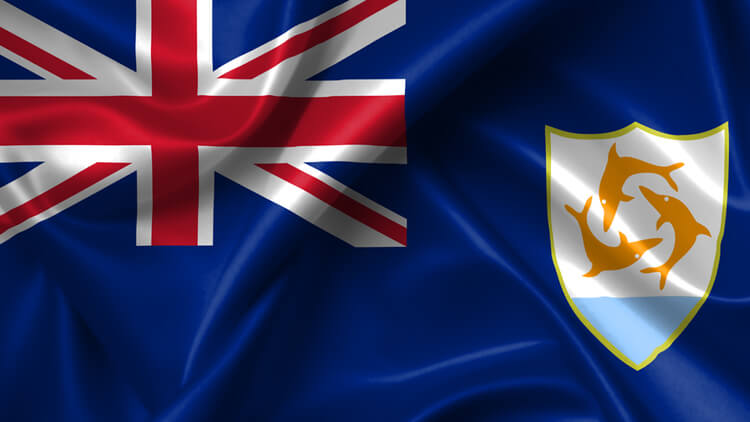
Anguilla is another prime jewel in the offshore world, one that has built its wealth on luxury tourism, offshore banking, lobster fishing, and remittances.
Under the country’s corporate governance regime, you can form an Anguilla LLC among other types of business entities. As an offshore vehicle, it is a highly coveted option for offshore investors because of its unique blend of liability protection and pass-through taxation.
Through business ownership, you can receive the utmost favorable tax treatment of not having to pay income taxes, estate taxes or capital gains taxes. If you want to make this tropical country the base of your operation, there’s flexibility in how you can do it.
Invest a minimum of US$750,000 in real estate and maintain it for 5 years or make a US$150,000 government donation to the Anguilla’s Capital Development Fund. Either will make you eligible for residency status.
But for nomadic investors who prefer to be on the move, the Migration Forum in Geneva also offers the same benefits package via a premium residency scheme.
The High-Value Resident Program (HVR) expressively states the conditions for being considered a local tax resident in Anguilla. With the first requisite being a flat amount of US$75,000 being paid to Anguilla’s Treasury for at least 5 consecutive years. Additionally, you are also required to own US$400,000 worth of property in Anguilla and maintain it throughout the period of staying as a tax resident.
As you can see, there’s virtually little to no legislative hurdle to getting a residency in this jurisdiction which makes it a must-have on every offshore investment list.
Bahrain

Bahrain is an Islamic country located between the Persian Gulf and the flourishing countries of Saudi Arabia and Qatar. As an offshore financial hub, it enjoys a steady flow of foreign investment from its banking and tourism sector, primarily due to it being one of the world’s largest oil reserves.
Income tax is virtually zero so this means business owners are relieved from having to file tax returns. The ambit of this exclusion, however, may not apply to businesses operating in the oil and gas industry.
As part of the Fiscal Balance Programme (FBP), the country’s long-standing VAT rate has now increased to 10% from 5%, effective from 1st Jan, 2022. But the change has yet to affect core sectors such as healthcare, education, construction and especially oil and gas.
Expats can have an easy time settling for a permanent residency through an online application using the official government online portal. And as usual, investors looking to enter the market via real estate investment can do so via the government’s new golden Visa scheme.
For business, real estate and retirees, the entry amounts are US$265,000, US$135,000 and US$1350, respectively.
3. Low-tax countries with the territorial tax system
When incorporating in no-tax countries, you will need to prepare yourself to deal with their uncertainty. For instance, if you had incorporated in Belize or BVI, you would now have to deal with their new Economic Substance Requirements.
More and more of these jurisdictions are changing their tax policies to fit the global standard. Particularly, they are adding more regulations and taxes on certain kinds of income. It is reasonable to predict that tax-free countries will no longer exist in the near future.
To avoid instability, you may want to reconsider your choice to certain low-tax jurisdictions. These places can guarantee you a much higher degree of stability and reputation. Hong Kong and Singapore are the 2 shining names for your consideration. They are ranked in the top 3 countries in regard to the Ease of Doing Business category, according to the Doing Business 2020 report.

Hong Kong
Hong Kong follows the territorial tax system. Doing business in Hong Kong can mean an easier time with statutory compliance and favorable tax treatment. It means only the income generated in Hong Kong is taxed. The income generated outside of this jurisdiction, on the other hand, is not. There is also no dividend tax, no capital gain tax, no goods and services tax.
If your company is opened in Hong Kong but carries out all activities in other foreign countries, it can be granted an offshore tax exemption. No tax needs to be paid in this situation.
As for income arising in Hong Kong, the corporate tax rates are only 8.25% (for the first 2 million HKD) and 16.5% (for the rest of the income).
UPDATE
On 5th Oct 2021, the European Union official greylisted the jurisdiction on the account that its taxing regime currently does not align with the international standards of financial transparency.
The recent inclusion was aimed at the legislative loopholes in its territorial taxation scheme that permit companies to avoid paying tax on passive income using Hong Kong as a sort of conduit.
Hong Kong Government has also shown initiative in adhering to the cause of combating cross-border tax evasion. With promises to amend its Inland Revenue Ordinance by the end of 2022 and proper implementation of relevant measures in 2023. As for the scale of changes, the Government has stated that it won’t affect the jurisdiction’s integrity as an offshore financial center.
Singapore
This island nation boasts some of the most indicative hallmarks of a global financial hub. Liberal rulemaking, strong diplomatic ties and a flourishing economy are the few reasons as to why you should incorporate in Singapore.
Singapore also follows the territorial tax system, so for income arising in this country, the corporate tax rate is 17%.
The foreign income, meaning generated in other countries, is tax-free. It can be subject to tax but only when being remitted into Singapore. Your company can still be exempted from foreign income tax when satisfying certain conditions.
Additionally, your company can apply for the tax exemption scheme for new start-ups (subject to certain conditions). The benefits are 75% tax exemption on the first 100,000 SGD and another 50% tax exemption on the next 100,000 SGD. The scheme will apply to the first 3 years of incorporation.
From the 4th year, your company is automatically eligible for the partial exemption scheme (no conditions to be met). The benefits are 75% tax exemption on the first 10,000 SGD and another 50% tax exemption on the next 190,000 SGD.
4. The bottom line
There are many countries with no income tax which can be taken into account: UAE, Bermuda, Bahamas, Saint Kitts, and Nevis, and the Cayman Islands. But please note that asking for a permanent residence for tax purposes is easier said than done.
Some countries with no income tax are quite difficult to access. Spending time on careful planning and preparing a large amount of money for investment or company establishment is of vital importance in most cases. You are advised to engage professional experts before moving.
Still, there is another solution that is to pick low-tax jurisdictions with territorial regimes as we mentioned in the first part. Hong Kong and Singapore are not only premium financial and business hubs in Asia but also have more accessible opportunities for income tax optimization.
Should you need more questions and want to chat with our experts, do not hesitate to drop us a message or email us via service@bbcincorp.com
Disclaimer
While BBCIncorp strives to make the information on this website as timely and accurate as possible, the information itself is for reference purposes only. BBCIncorp would like to inform readers that we make no representation or warranty, express or implied. Feel free to contact BCCIncorp’s customer services for advice on specific cases.
Get helpful tips and info from our newsletter!
Stay in the know and be empowered with our strategic how-tos, resources, and guidelines.
